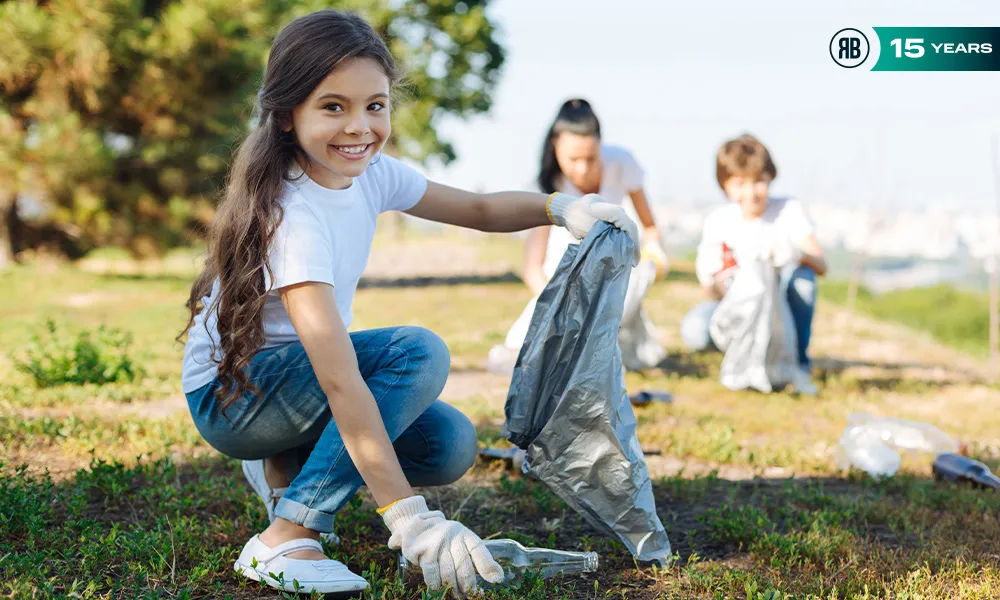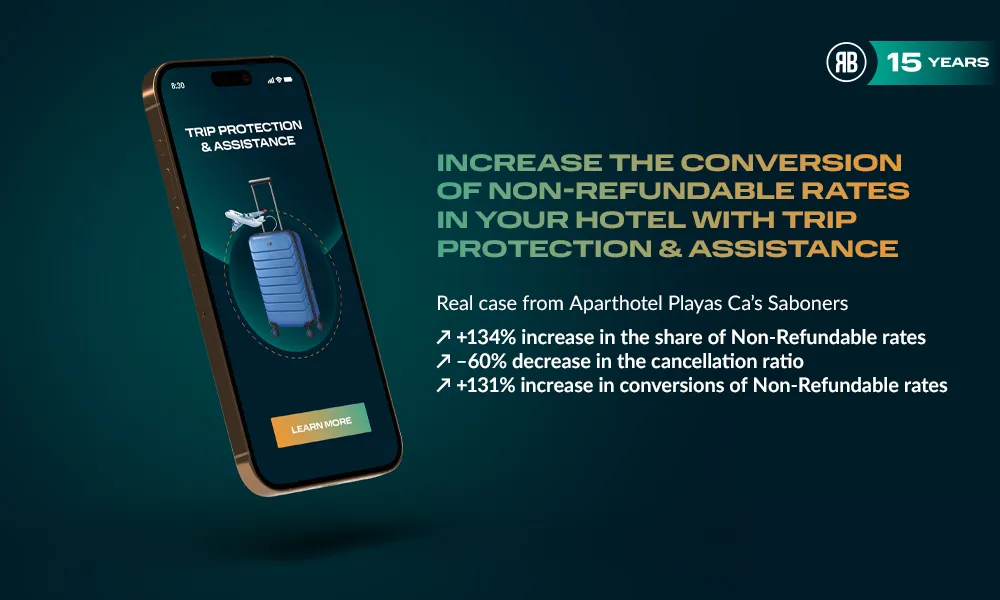5 reasons to change your amenities for more sustainable alternatives
News
March 14, 2024

Content in collaboration with our partner Bioscore Sustainability, sustainability consultancy for tourism companies.
The hotel industry is at a crucial moment for adopting sustainable practices. The increasing environmental awareness of travelers demands greater responsibility from hotels in managing their resources and the impact they have on the planet.
One of the aspects where sustainability is especially relevant is in the use of amenities. Traditional single-dose amenities, usually made of plastic or cardboard, represent a high volume of waste that, in many cases, is not properly recycled.
In this article, we offer some of the reasons why changing single-dose amenities for more sustainable alternatives is a crucial decision for hotels looking to adapt to new market needs and contribute to environmental protection.
1. Reduction of the carbon footprint
Single-dose amenities, especially those made of plastic, have a considerable carbon footprint. Their production, transportation, and disposal generate greenhouse gas emissions that contribute to climate change. Below, we analyze in detail each stage of their life cycle:
The production of plastic amenities has a significant environmental impact at various stages. The extraction of oil, a non-renewable resource, necessary for their manufacture, can cause damage to ecosystems and pollute water and air. The industrial processes to transform oil into plastic consume large amounts of energy, mainly from fossil sources, releasing CO2 into the atmosphere and contributing to global warming. In addition, plastic production emits other greenhouse gases such as methane and nitrous oxide, further aggravating the impact on climate change.
These products are transported by trucks, ships, or airplanes, generating emissions of greenhouse gases (GHG). The distance traveled from the place of production to the hotel is crucial, since the greater the distance, the greater the carbon footprint. Long-distance transport, especially by air, increases the environmental impact. Hotels that import amenities from distant countries face a higher carbon footprint in this aspect, and as a whole, transport can represent a significant proportion of the hotel's total footprint.
The disposal of single-dose amenities presents significant environmental challenges. Most of these products end up in landfills, where their decomposition takes hundreds of years and releases methane, a greenhouse gas (GHG) with a climate impact 25 times greater than CO2. The incineration of plastic is also problematic, as it generates emissions of GHGs and harmful pollutants, such as dioxins and furans, which affect human health and the environment.
2. Reduction of waste generation
Each year, millions of single-dose amenities, mainly plastic, end up in landfills or incinerators, with a devastating environmental impact. This waste takes hundreds of years to decompose, polluting the soil, water, and air.
Sustainable alternatives, such as biodegradable or compostable products, can help significantly reduce the amount of waste generated by hotels:
Biodegradable products:
- Natural decomposition. They decompose into organic matter by the action of microorganisms, without polluting the environment.
- Reduction of the carbon footprint. They do not release methane, a greenhouse gas with a high climate impact, during their decomposition.
- Healthier ecosystems. The organic matter resulting from the decomposition of biodegradable products nourishes the soil and improves the health of ecosystems.
Compostable products:
- Conversion into fertilizer. They can be converted into natural fertilizer through a composting process, which allows them to be reused as fertilizer for plants.
- Waste reduction. They help reduce the amount of waste sent to landfills or incinerators.
- Sustainable agriculture. The composting of organic products improves soil quality and reduces the need for chemical fertilizers in agriculture.
3. Improvement of the hotel's image
Today's travelers seek options aligned with their environmental values, being aware of the impact of tourism on the planet. By offering sustainable amenities, the hotel demonstrates its commitment to environmental responsibility, generating positive perceptions among guests and fostering greater satisfaction during their stay. This approach also favors loyalty, as guests who share the hotel's values are more likely to return.
In addition, the marketing and communication strategy reinforces the hotel's image, highlighting sustainable practices on the website, social networks, and informative materials in the rooms. This effort contributes to differentiation in a competitive market, positioning the hotel as a benchmark in sustainability and providing it with a competitive advantage.
4. Economic savings
Although the initial investment may be higher when adopting sustainable practices, operating costs decrease significantly over time. Products such as refillable dispensers and bulk amenities have a longer lifespan, which reduces the need for frequent replacement and, therefore, the associated costs.
As we mentioned above, by opting for more sustainable alternatives, dependence on non-renewable resources is reduced, decreasing the costs associated with the extraction, production, and transportation of raw materials.
In many places, adopting sustainable practices aligns with environmental regulations and standards. Complying with these standards can avoid fines and penalties, which indirectly contributes to the hotel's economic savings.
5. Opportunity for differentiation
In a highly competitive market, offering sustainable amenities can be a way to differentiate from the competition and attract a more environmentally conscious audience.
Effectively communicating the hotel's commitment to sustainability through its website, social networks, and informational materials in the rooms establishes a direct connection with guests who value environmental responsibility.
Transparency in communication not only reinforces the hotel's image as a responsible entity but also creates a relationship of trust with guests. Furthermore, providing informational materials in the rooms, such as brochures or signs, allows guests to learn about the specific measures the hotel is taking to be more sustainable during their stay.
Ultimately, changing single-dose amenities for more sustainable alternatives is a strategic decision that benefits the hotel, the planet, and the guests.
It is an investment in the future that reduces environmental impact, improves the hotel's image, saves costs, and differentiates it from the competition.
Read more







